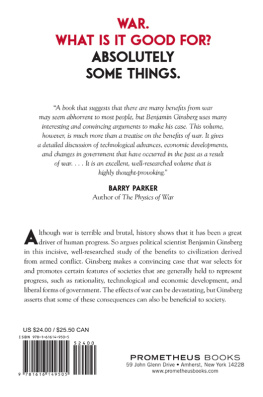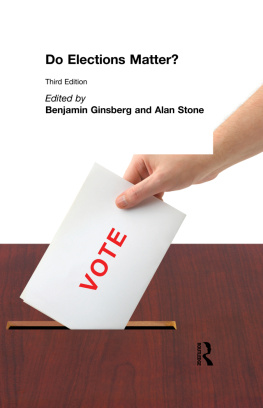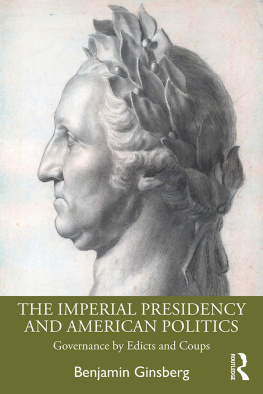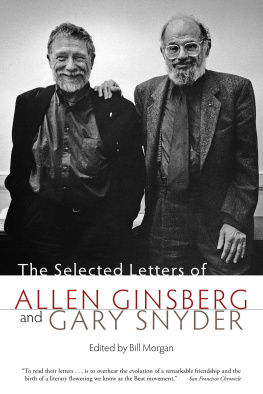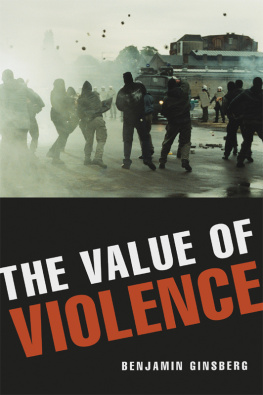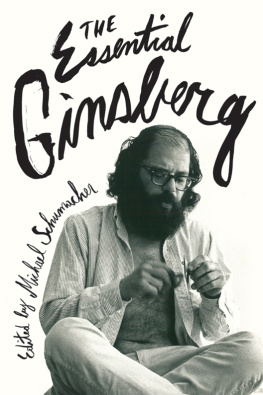

Photo by Will Kirk
Benjamin Ginsberg is the David Bernstein Professor of Political Science and the director of the Center for Advanced Governmental Studies at the Johns Hopkins University. He is the author of more than twenty books, including The Value of Violence; How the Jews Defeated Hitler; The Fall of the Faculty: The Rise of the All-Administrative University and Why It Matters; Do the Jews Have a Future in America?; and Political Science as Public Philosophy, coedited with Gwendolyn Mink.


Organized warfare is among the most common and persistent of human activities. Yet, war is usually said to be irrational, even a manifestation of collective insanity. In his eloquent 1967 Beyond Vietnam speech at Riverside Church in New York, for example, Dr. Martin Luther King Jr. declared, Somehow this madness [of war] must cease. War is brutal but it would, nevertheless, be incorrect to say that war generally exemplifies or fosters irrational thinking. Quite the contrary. As terrible as it is, war and the possibility of war exert considerable pressure upon societies to think and plan logically in order to protect their security interests and, sometimes, their very existence. War, as Thucydides remarked, is a harsh teacher. Those societies unable or unwilling to engage in logical thinking and planning are not likely to survive what might be called the audit of war. Over time, moreover, war not only promotes rational thought in the security sphere but produces a spillover effect into other realms, as well. The fields of planning and engineering, for example, as well as bureaucratic forms of organization, all have military roots. Indeed, far from representing or promoting irrational thinking, war tests the validity of assumptions, penalizes errors in judgment and, above all, severely punishes those who engage in actions based upon fanciful or magical thinking.
Consider the example of the Lakota Ghost Shirt. During the 1880s, some members of the Lakota Sioux came to practice a version of the Ghost Dance ritual they believed would restore the power and prominence of Native Americans and halt the spread of white settlements. Associated with this ritual was the wearing of Ghost Shirts, apparently inspired by Mormon Temple garments, that were supposed to possess magical properties, including the ability to stop bullets. A battle between a band of Lakota and a contingent of heavily armed US cavalry troopers culminated in the infamous Wounded Knee Massacre of 1890, the last battle of America's so-called Indian Wars. Whatever else they may have demonstrated, the carbines of the cavalry rather conclusively proved that religious rituals and Ghost Shirts offered no protection from bullets. In this example, war definitively refuted a form of magical thinking that had been gaining adherents among Native American tribes for a number of years. Absent the harsh audit of war, the magic of the Ghost Dance apparently had been attractive and plausible to tens of thousands of individuals. After the Wounded Knee battle, Ghost Dancing and magical Ghost Shirts fell from favor, having failed a rather significant reality test.
Delusory thinking may, as in the foregoing example, derive from religious sources, but it is certainly not limited to religious roots. Political leaders and policy makers, to say nothing of ordinary citizens, have also been known to engage in what might be seen as mundane forms of magical thinking. These are characterized by a rigid adherence to beliefs and preconceptions without evidence or even despite strong evidence to the contrary, a propensity to evaluate information through the lens of belief rather than the converse, a tendency to act upon the basis of accepted dogmas rather than objective facts, and an effort to achieve impossible goals. These secular or mundane forms of magical thought are often expressed as blind faith in leaders, stubborn adherence to ideologies, and fervid loyalty to institutions and institutional norms. Such beliefs are effectively ensorcelled and can be extremely resistant to rational examination. A minor but well-known example of this sort of magical thinking is the case of partisanship in the United States. Even America's rather shopworn Democratic and Republican parties seem to have many zealous adherents. Quite a few of these partisan loyalists are more likely to evaluate information through the lens or perceptual screen of their own party identification than to reevaluate their party affiliation on the basis of events and facts.
THE SECULAR SOURCES OF POLITICAL MAGIC
Humans are quite capable of many forms of foolish and fantastic thinking. Superstitions, for example, are widespread among Americans. Some take seriously the idea of demons and witches. Many claim to perceive causal forces in accidental events, impute supernatural or charismatic agency to mundane phenomena, and are convinced they apprehend mystical patterns in random occurrences. Some psychologists have argued that this tendency is hardwired into the human brain. Many, if not most, superstitions are harmless. A few moments of prayer can provide comfort and catharsis. A lucky charm or amulet can offer comfort to a frightened person.
Unfortunately, in addition to harmless personal superstitions, millions of individuals are also willing to accept the various fantasies often devised by political elites to justify their own efforts to secure or retain power. Political life is filled with both secular and religious dogmas that seem dubious, even nonsensical, when viewed from the outside but make perfect sense when understood as creeds espoused by some ruling group to justify its grip on power. Such belief systems could be said to possess political but not objective validity.
Political leaders know that many ordinary individuals can easily become enthralled by high-minded if vacuous ideals, religious ideas, communal or national loyalties, or, for that matter, racial and ethnic hatreds. Elites, often cynically, see in such ideas powerful tools for mobilizing and maintaining popular followings. Thus, even elites whose own piety or patriotic commitments, for example, are weak may find reason to publicly preach religion and nationalism. In the United States, in recent years, many Republicans have publicly courted the support of religious conservatives while privately calling them goofy or the nuts. So often in politics, principles serve as vehicles for interests.
Take, for example the Incan practice of ancestor worship. The Incas believed that their apparently dead rulers were actually immortal. The carefully preserved mummies of these rulers, moreover, retained property rights. Because of this belief a substantial fraction of the empire's lands and labor were devoted to the production of goods for the benefit of long-deceased and mummified rulers who were displayed on ceremonial occasions. For most, nevertheless, defending this belief system was both a political and moral imperative.
Despite their lack of objective validity, ideas that serve the interests of important elites and are promoted by them can acquire social momentum, diffuse through a society and become ensorcelled to the point that their instrumental origins are nearly forgotten. Thus, in eleventh-century Europe, the idea of a crusade to free the Holy Land arguably originated from political struggles within the Church and between the Church and secular rulers who had begun to challenge its authority. Over the next century, however, the Inquisition took on a life of its own, engulfing Spanish society in several waves of denunciations and investigations in what appeared to be a never-ending effort to define, identify, and root out religious heresy.
Next page
